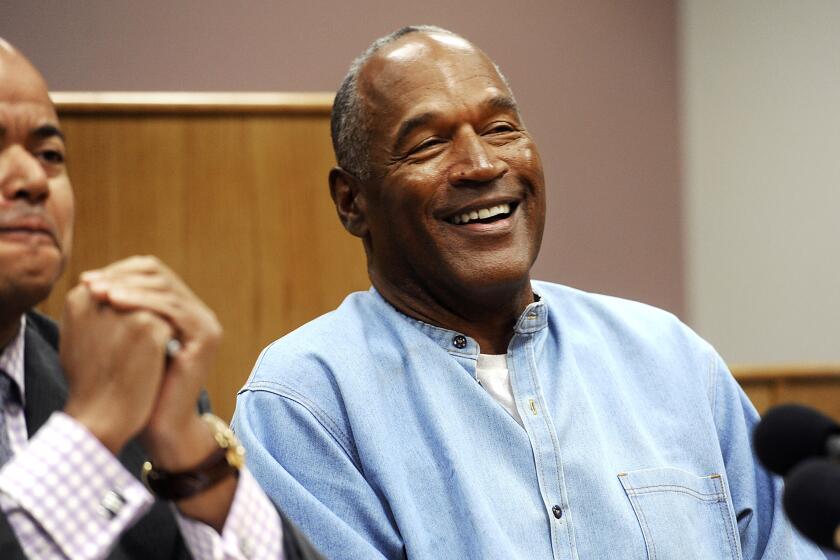Clean-fuel ship zone is widened
More than half of oceangoing vessels serving the ports of Los Angeles and Long Beach have been skirting traditional shipping lanes to avoid air pollution curbs, prompting California officials Thursday to extend the state’s clean-fuel zone beyond the Channel Islands.
The unanimous vote by the California Air Resources Board came after strong protests from the U.S. Navy that the jump in commercial ship traffic across the Point Mugu Sea Range was “seriously jeopardizing successful completion of vital Department of Defense testing and training missions.”
California’s clean-fuel zone, which took effect in July 2009, is the toughest ship pollution rule in the world, requiring oceangoing vessels to substitute less-polluting oil for the bunker fuel they commonly use.
As originally designated, California’s coastal zone encompassed a strip 24 nautical miles wide, including traditional shipping lanes between the Channel Islands and the shore.
But shippers began to travel beyond the islands -- motoring through the 36,000-square-mile area where the Navy conducts tests involving missiles, ships, submarines and aircraft. Since the clean-fuel zone took effect, the number of ship transits through Navy waters jumped from an average of two a day to as many as 15 a day, according to the Navy.
The traffic delayed one major missile exercise, according to Capt. Aaron Cudnohufsky, who testified before the board Thursday. He said delays can cost up to $30 million a day, and predicted that conflicts would increase with projected growth in commercial shipping.
More than 40% of U.S. imports travel through the ports of Los Angeles and Long Beach.
Burning of bunker fuel has been a major contributor to asthma, cancer and other illnesses in neighborhoods around the ports. Between 2009 and 2015, the clean-fuel zone is expected to prevent 3,500 premature deaths, according to the air board.
Environmentalists and public health groups applauded the extension of the zone. Candice Kim of the Coalition for Clean Air called it “a great victory for the environment,” adding that it sent “a message to shippers that avoiding regulations intended to save lives won’t be tolerated.”
The Pacific Merchant Shipping Assn., an industry group, fought the original clean-fuel zone in court. The 9th Circuit Court of Appeals ruled in March that the state had the authority to regulate ships.
In a letter to the board, the association’s vice president, T.L. Garrett, opposed the extension, saying that it will require companies to retrofit tanks, pipes and engines.
Using the longer route outside the Channel Islands has saved shippers about $6,000 per round-trip, according to the air board, because bunker fuel is cheaper than cleaner alternatives.
The two industry officials who testified Thursday, Dan Krokosky of Chevron Shipping and Henry Pak of Hanjin Shipping, did not object to the extension.
Instead, they urged the board to delay until 2015 the next phase of clean-fuel rules, which require a transition from fuel with 1% sulfur content to fuel with 0.1% sulfur content.
“It is unlikely that anyone is going to sell this 0.1% fuel,” Krokosky said, adding that the fuel’s viscosity had created safety issues. “One of the dangers is that a ship will not start,” he said.
Air board officials acknowledged that 2% of vessels using the lowest sulfur fuel have experienced propulsion failures. But they said the technical issues are being resolved.
The board voted to extend the timetable for the cleaner fuel by two years, to 2014.
Environmental groups opposed any delay in moving to the low-sulfur fuel, but they said the effect could be offset if the board would enact limits on ship speed. Lowering ship speeds to 12 knots within 40 nautical miles of the coast, said Cooper Hanning of the Natural Resources Defense Council, would reduce collisions with whales and other marine mammals, as well as cut air pollution and greenhouse gases that are trapping heat in the Earth’s atmosphere.
--
More to Read
Start your day right
Sign up for Essential California for news, features and recommendations from the L.A. Times and beyond in your inbox six days a week.
You may occasionally receive promotional content from the Los Angeles Times.







